Plex: 5 March 2025
Brief Updates; Introducing Myself; Your Moods and This Moment; Around Town; Two Sacred Circles: a Teaching Dream; You Can’t Vote Your Way Out of a Coup; Plex Retrospective

The Biweekly Plex Dispatch is an inter-community newspaper published by Collective Sense Commons on first and third Wednesdays of each month. Price per issue: 1 USD, or your choice of amount (even zero).
In This Issue
- Brief Updates
- Introducing Myself (Stacey Druss)
- Your Moods and This Moment (Gil Friend)
- Around Town (Charles Blass)
- Two Sacred Circles: a Teaching Dream (George Pór)
- You Can’t Vote Your Way Out of a Coup (Douglass Carmichael)
- Plex Retrospective (Peter Kaminski)
charles blass
Brief Updates
Julian Gómez
The Center for Computer Graphics History has just received the IRS blessing of 501(c)(3).
Peter Kaminski
YouBots.ai is now live, in paid beta. I’m the technical co-founder, and it’s a full-time gig for me. YouBots is a curated set of business-savvy chatbots that know more about your business than the typical chatbot. We’re best for small businesses of 5-25 employees who know they need to start using AI, but haven’t had time to figure out how. Let me know if you have any questions!
charles blass
Introducing Myself
by Stacey Druss
Some of you reading this know me personally. Others have read something I’ve written or have heard me speak. Still, in spite of my efforts to be as illuminating as human[]ly possible, about the soul who stewards this body of Stacey, with the exception of a few, I’m not sure how many of you really know who I am. And so let me take my own advice and try to make it as succinct as possible; it’s important to me. I want you to know me.
S. Spiritual, Scientist, Systems Thinker
T. Teacher, Tenacious, Talkative
A. All things
C. Curious, Creative, Caring,
E. Everything
Y. (?) Because it was the role I signed up for and these are the character descriptions.
C. Compassionate, Collaborative
A. All things
R. Radical, Rage
A. All things
D. Direct, Designer, Dreamer, Dancer (at Heart)
R. Rough
U. Universal, Unifying
S. Strong
S. Strange
Please allow me to explain that this desire to define myself to you, is more than just the shared one that we all have, to be understood. No, this is much more than that. I came here to you in need of help. Not just for me, but for US. We’re a team and I needed you to help me to help myself. You see, I couldn’t see what I can’t see, at least not from the outside. I’d already done the work from the inside but there were still some pieces that I needed you to reflect back to me. Then and only then, could I integrate this new knowledge and rework this System 6/2 Role Model Projector, to operate her system more efficiently. And that is critical to the mission. Until I was debugged, I wouldn’t be able to share the gifts of wisdom that I carried within. And honestly, they were becoming quite a burden to drag around with me.
In the meanwhile, I dumped out as much data as I could, hoping that some would see the shining object in the sand and bend down to pick it up. Sometimes, not in these spaces where I didn’t think necessary, I sorted my nuggets into piles and dropped them for others to explore. That was my favorite part, watching them build, and rearrange for their own needs, what it was that I had offered.
We’re running out of time though and I still haven’t been able to share the wisdom that my teammates on our mission needed; the update for their software, crucial for Optimization of our larger system. It’s written in code; The Alphabet Code. This code will unlock the key that makes communications flow. We will no longer have to swim/labor through floods of data to keep from drowning. And that’s what THEY DON’T WANT YOU TO KNOW!
I hope you’ve enjoyed getting to know me. If you’d like to connect and possibly engage in some collaborative writing with me, please reach out. I’m currently interested in creating a science fiction narrative that can help average people better understand what is happening on the political landscape from a higher perspective, as it pertains to technology, fear and greed. My email is 27openheart@gmail.com or you can find me on Facebook.
#To Infinity and C-Ond!
charles blass
Your Moods and This Moment
by Gil Friend
Originally published at Your Moods and This Moment.
If you’ve followed my work or writing for any length of time, you’ve probably noticed that I’ve written a lot recently about moods. And that working with moods is a central element of the ontological coaching I do with my clients.
Am I going to touchy-feely on you? No. Quite the contrary. Getting better at observing mood, cultivating mood, and orchestrating mood is an key to both greater effectiveness and greater peace of mind. Even in the face of unsettling circumstances. Oh, like now.
We can think of moods in relation to emotions like climate in relation to weather. Climate is a relatively long-term, relatively slow to change, relatively characteristic to a place context in which weather happens, with faster variation. Mood is a relatively long-term, relatively slow to change, relatively characteristic to a person (or organization, or culture) context in which emotions happen.
My mentor Fernando Flores and his colleagues speak of mood as “an orientation to the future.” Mood shapes the assessments we make – about possibility and impossibility, about confidence and resignation, resoluteness and anxiety – and is in turn shaped by the assessments we make. If I’m in a mood of resignation (“Nothing I can do in the future will make any difference.”), I’m much more likely to be in the grip of restrictive assessments – it’ll never work, we’ve tried it before, he’s not competent, etc. In a mood of ambition (“The future holds possibilities and I like it.”), I’m much more likely to make expansive assessments — We can do this. Here’s a way we might be able to do this, she’s competent to do this, there must be a pony in here somewhere.
And in turn our moods are shaped by the assessments we make—and receive. Notice how your mood shifts when you’re surrounded by people making restrictive (negative) assessments about you, or by people appreciating you, what you’ve done, or what you’re up to.
So what does that mean for you—and me—in times like, oh, now? Well, here’s a three step practice that I’ve found enormously helpful. (And my clients would agree.)
- OBSERVING MOODS: First, simply take stock. What mood or moods do you find yourself in now? Or these days? Are there moods that you commonly wake up into? Or live your day in? Or that “show up” in certain situations, or with certain people? Don’t judge them; just note them. Then, notice what assessments (opinions, interpretations, judgements) are present with that mood, and reflect on whether those assessments are grounded (based in something real and present) or not grounded (imagined, or remembered from a different circumstance).
- CULTIVATING MOODS: If grounded, are there moves you can make—to enhance the circumstance that’s given rise to your expansive assessment, or resolve or mitigate the circumstance that’s given rise to your restrictive assessment? If not grounded, can you note that and let it go? My clients (and I) observe that somewhere during this process something shifts—a restrictive mood, like resentment, might loosen its grip, while an expansive mood, like curiosity, might deepen. And like a farmer or gardener cultivating soil to enable plants to grow well, or a musician or athlete cultivating the strength, reflexes, and muscle memory to be able to perform, you might find your “characteristic” mood changing, and your ability to dance with it growing.
- ORCHESTRATING MOODS (cultivating moods with others): I’m still a beginner on this one—orienting, practicing, learning how my words, actions, and moods affect the moods of others. We affect each in these ways all the time, whether intentionally or not—the words we speak, our tone of voice opening a meeting, our body language, the intentions we set, the music we play. What possibilities might open if we orchestrated mood intentionally, not as manipulation but as a contribution toward taking care of what we care about together?
What does mood have to do with the historic moment we’re living now? Think about it. Despairing, resigned, and helpless is exactly what they want us to feel. Let’s not. We’re not.
------------------------------------------------------------------------------------------
PS: If you’d like to learn more about navigating mood, and what possibilities these practices might open for you, let’s explore that together! I can offer you two ways:
- Direct, confidential, one-on-one coaching with me. (Now including unlimited access to the Mood Navigator gym.) You can apply for an introductory working session here: delphi.ai/gfriend. No cost, no obligation, no net.
- Or, if you’re not ready for that, check out my coaching bot—trained on my 50+ years of experience in business, sustainability, strategy, ontology, ecology, transformation, and deep inner work—here: pages.natlogic.com/coach
And in any case, I’d welcome your comments here.
charles blass
Around Town
by Charles Blass
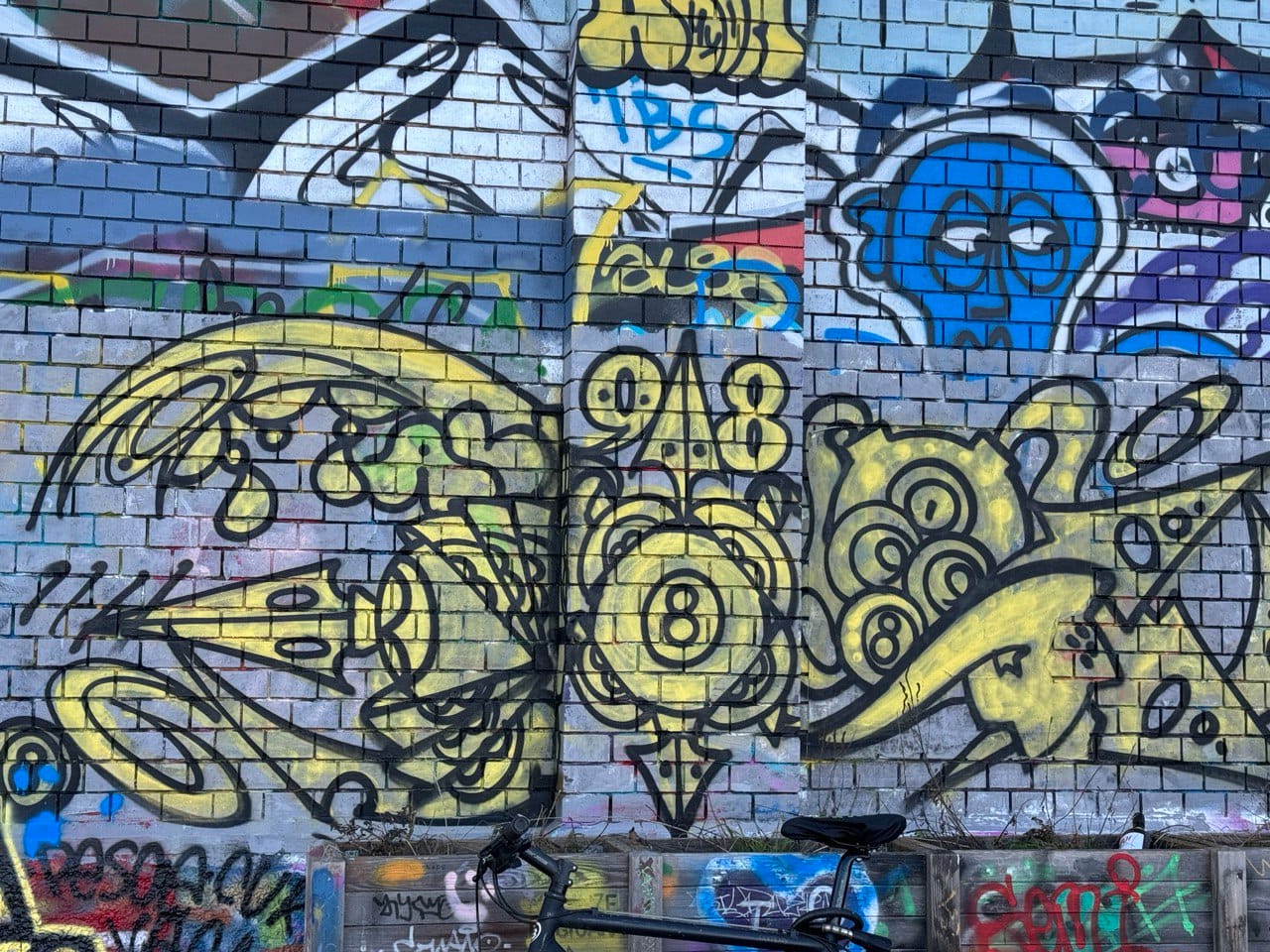
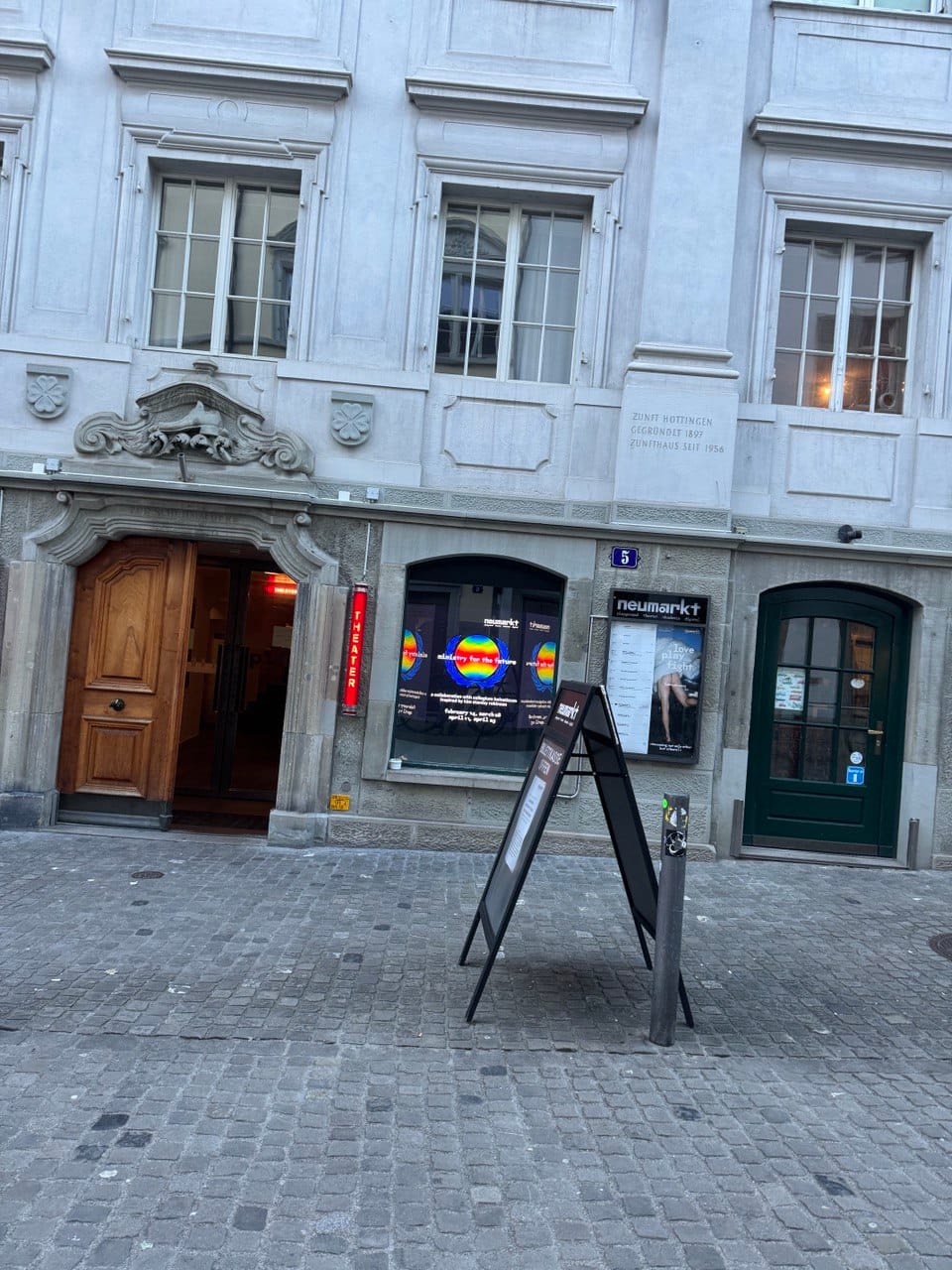
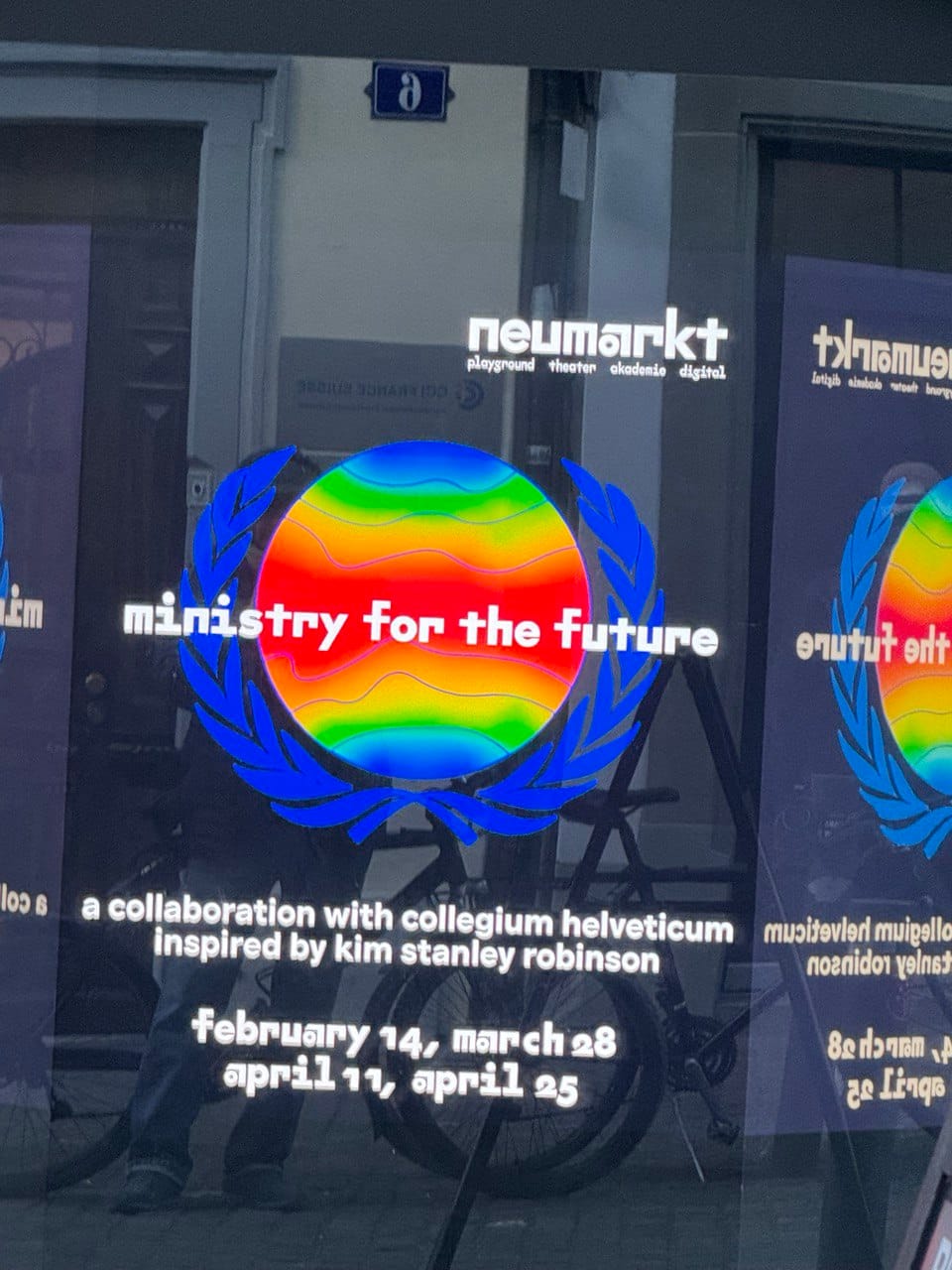



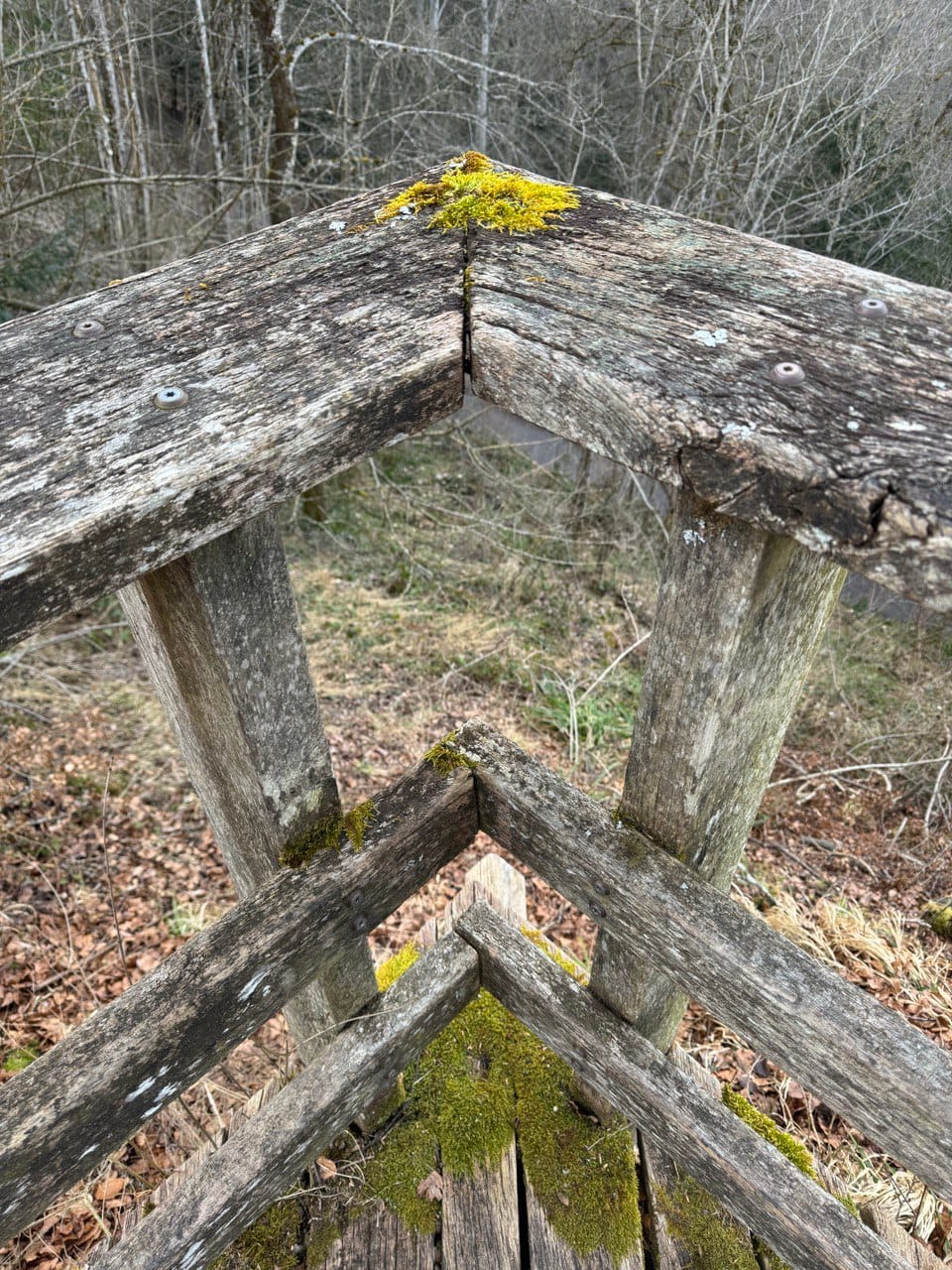
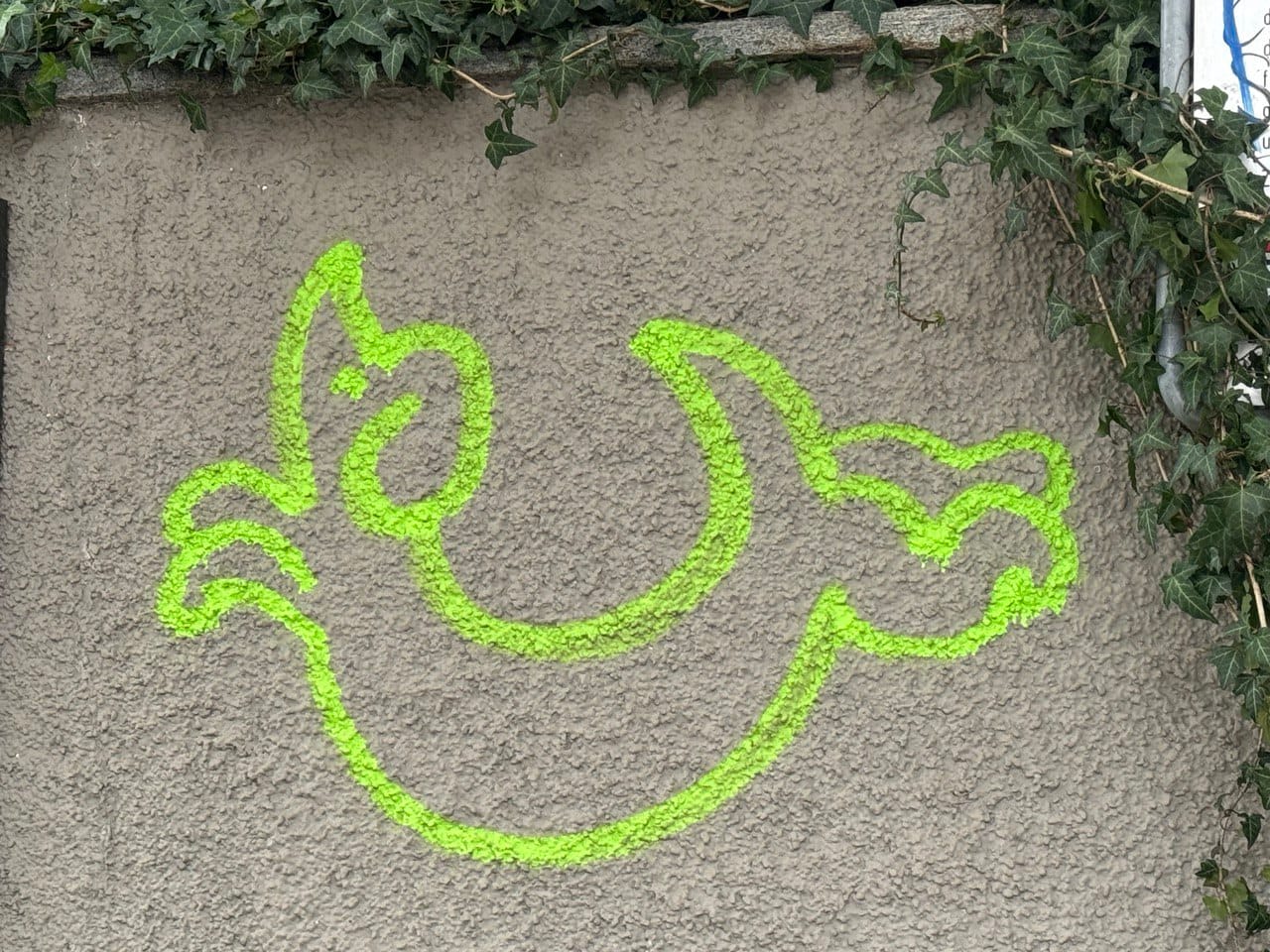
charles blass
Two Sacred Circles: a Teaching Dream
by George Pór
Originally published at Two Sacred Circles: a Teaching Dream.
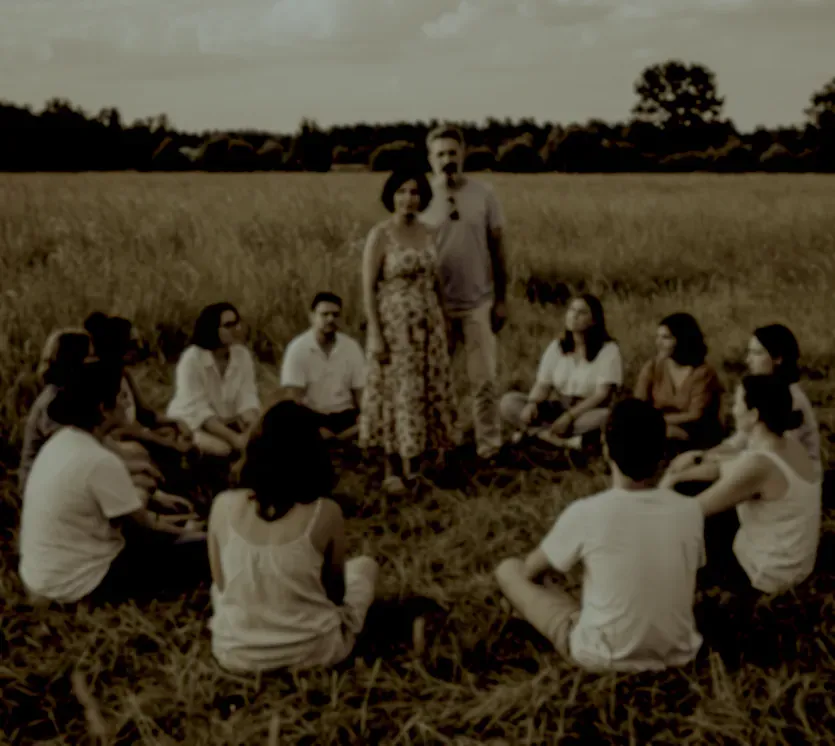
Our gaze rests on each other’s eyes. Her shiny, deep-brown iris glows with the fire of her soul. She speaks with profound resolve and softly.
I don’t remember all the words she uttered in the dream, but they were words of passionate yearning for evermore dwelling in the One and the One in her.
Her intent look and soft-power voice vibrate in me, stirring a resonant response. She reaches out and holds my hands. It’s silent communion. Subtle energies course through our bodies in a circular pattern from me to her, from her to me, back and forth, until there’s only one ecstatic movement.
Read the rest of the story on George’s Substack.
Subscription is free and appreciated.
charles blass
You Can’t Vote Your Way Out of a Coup
by Douglass Carmichael
The American Revolution was against King George, and was an effort to liberate private property from authoritarian control by a monarchy.
But the intent of the revolution was also to hold onto the private property of the class of the founding fathers. So in a way, the revolution completed its work dealing with private property, yet left the other half unfinished.
Where are Trump’s tax returns? This question emerges as Trump appears in the mask of King George, while the private property of the upper class in America remains protected by checks and balances, which keep anything from happening.
I would say that this idea of being in an incomplete revolution is the defining situation of our time. We have our work cut out for us.
The reason we are getting destruction of the government and no plan for what governance we need is because Musk and Trump see the power of the presidency as a means not to governance, but to private gain.
Neither Trump nor Musk want to be president. It is only a means to what they do want.
Trump wants to turn the world into a real estate deal-making zone. He wants to convert politics into a market where he can buy and sell and trade and get richer.
Musk wants to destroy the government that exists, to free up the tax money that supports it, so he can use that money to get to Mars and get a leading place in history.
The rest of us are left without a government. History suggests that it is time for a new constitutional convention, but in the context of climate change, it will be very hard to do.
History says you can’t vote your way out of a coup. The adequate response, albeit with the danger of civil war, is a counter-coup.
charles blass
Plex Retrospective
by Peter Kaminski
A quick look back at some of the Plex over the last few years. We don’t yet have deep links directly to individual updates, just to the whole issue. Thank you for bearing with us. Some day!
2022
- Can We Afford to Have a Future? by Gil Friend: Gil and Andrew Winston explored the misconception among business executives that investing in sustainability and a clean economy is financially unfeasible, arguing that such investments are not only affordable but necessary for a sustainable future.
- Oracy Labs by Hank Kune: Hank, Leif Edvinsson, and David Gurteen aim to recreate the generative conversations of historical salons in the Metaverse, fostering deep thinking and co-creation of understanding through spoken communication and new competencies.
2023
- Pathways to Enable Open-Source Ecosystems by Dave Witzel: Updates on NSF grant submissions for open-source ecosystem development.
- SIGGRAPH 2023 and Dent 2023 by Julian Gómez: Reports on conferences.
- Where do I belong? by Todd Hoskins: A reflective piece on personal identity and community.
- Collaborative pieces and reflections from Gil Friend, Ken Homer, and George Pór on topics like renewable energy, sense-making, and superorganism soul.
- Open Infrastructure Stack for Landscape Regeneration by David Witzel: Focused on infrastructure for environmental restoration.
- AI, Moloch & the Meta Crises by Wendy McLean: Explored the intersection of artificial intelligence and societal challenges.
2024
- Ag Data Wallet UX Collabathon Info Session: Details about a collaborative event on agricultural data tools.
- Articles by Hank Kune, George Pór, Douglass Carmichael, Klaus Mager, Todd Hoskins, and Ken Homer exploring election year themes, AI’s compassionate future, and spiritual reflections.
- Wandering Phase by Kevin Jones: Reflections on community journalism and outreach. This reflective piece explores Kevin’s journey of self-discovery and professional transition, highlighting the importance of purposeful exploration in one’s career and life.
- The Biweekly Plex Patterns conversation between Charles Blass and Peter Kaminski: This meta-discussion about the Dispatch itself provides insights into the publication’s processes and goals, potentially inspiring readers to engage in community journalism
- Contributions from Gil Friend, Peter Kaminski, Jack Park, and Ken Homer on topics like mood dynamics, racism awareness, and seasonal reflections.
- Topics include mutual updates (Kevin Jones), trauma-informed design (Wendy Elford), AI & climate (Gil Friend), and historical reflections (Ken Homer).
- George Pór’s “GPT-4oh!” piece and Jose Leal’s vision for Society 2045 stand out in the May 15 issue.
- Articles by Patti Cobian on shell collecting and Wendy Elford on trust gaps.
- Reflections on climate institutions (Douglass Carmichael) and Bali memories (Ken Homer).
Ongoing
Charles Blass’ video contributions: Though not traditional articles, these short video snippets from around Charles’ town have been noted as valuable interstitial content that enhances the visual appeal and variety of the Plex.
charles blass
Thank you for reading! The next edition will be published on 19 March 2025. Email Pete with suggested submissions.
Grateful appreciation and many thanks to Charles Blass, Douglass Carmichael, Stacey Druss, Gil Friend, Julian Gómez, and George Pór for their kind contributions to this issue.